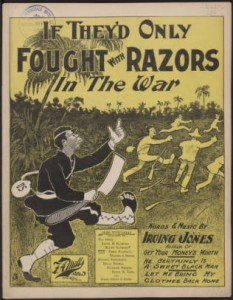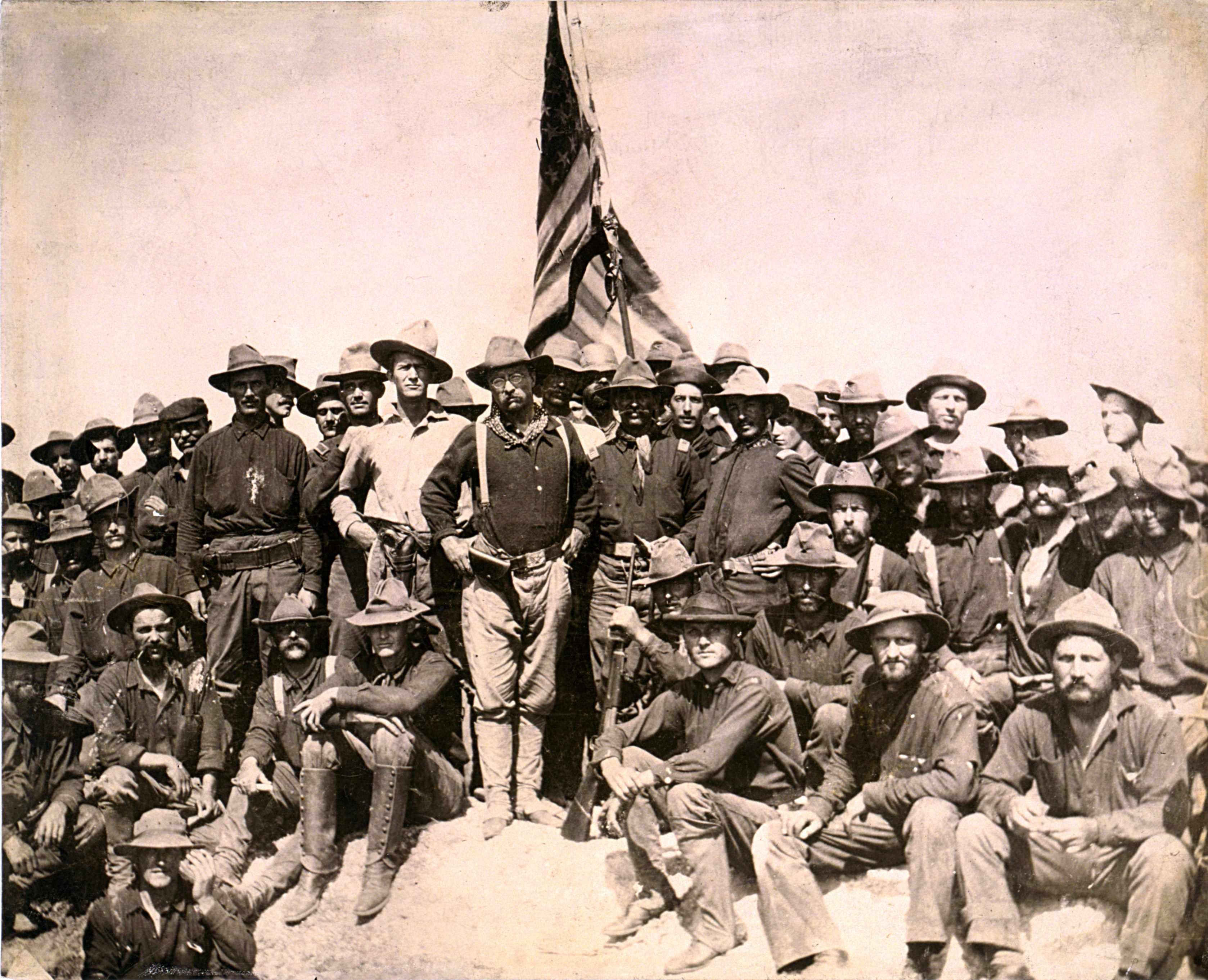Patriotism
Before television and radio became the main forms of entertainment in America, music was the primary outlet that U.S. citizens had for entertainment. This means that the themes discussed in the music had a tremendous amount of impact on how U.S. citizens viewed certain topics. Patriotism is a subject that can be easily manipulated. It is rare when a war fought by the United States is viewed with criticism, and all too often any dissent is silenced or ignored. Abraham Lincoln, commonly viewed as our staunchest supporter of liberty, suspended the right of Habeas Corpus on several journalists whom he felt did not support the American Civil War. In this light, the music of WWI and the Spanish American War provides an intriguing case study on how music can be used for propaganda purposes to support or, in rare situations, criticize war.
Minnie Lee Jeffords composed this song in 1917, the year the United States went to war in Europe. Typical of songs of the time, this is extremely supportive of the war and President Wilon’s decision to become involved. The lyrics claim that, “When foreign nations threaten to destroy our land…We are with you Mr. Wilson, it is up to you.”
This form of patriotism is dangerously close to jingoism: aggressive foreign policy fueled by extreme patriotism. The United States was not threatened by the Germans in WWI like the songs claims, but songs like these spurred on the populace to fight.
One facet of patriotism is distaste for foreign countries. The Spanish American War, perhaps best known for the advent of “yellow journalism,” yielded many fascinating songs. This song, If They’d Only Fought with Razors in the War, was composed by Irving Jones in 1898. The most memorable lyric of the song is when the protagonist claims that, “If they’d only fought with razors in the war, I’d certainly spilled a lot of Spanish gore.” Musical composers had no qualms with describing vivid, brutal scenes if it involved the enemies of America.
Patriotism comes in many forms, and this song composed by John F. Carroll in 1922 takes a different approach to the more bombastic songs shown above. Soldiers are well-respected while fighting enemies foreign and abroad but after the fighting ends they can be forgotten and tossed aside. Soldier Bonus Blues discusses this issue, and the lyrics are just as poignant today as they were in 1922.
“We’ve got the blues, the soldiers’ bonus blues, for we don’t think they’ll ever pay. We would not shirk if we could get work. We would do the ‘heavy’ every day.”
Return to the homepage here.




 Teddy Roosevelt and his Rough Riders, 1898
Teddy Roosevelt and his Rough Riders, 1898